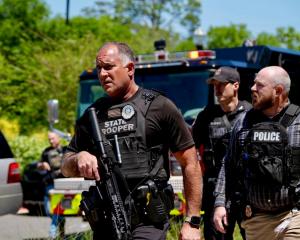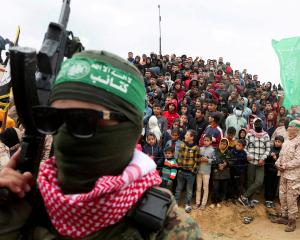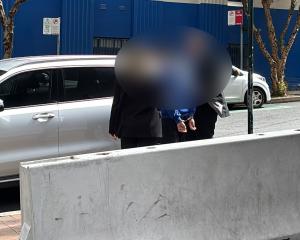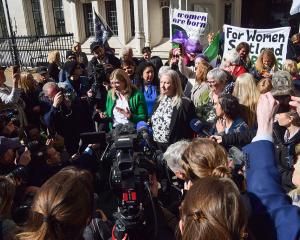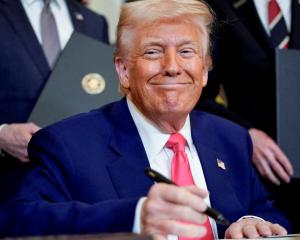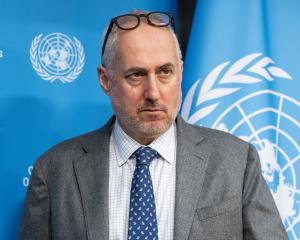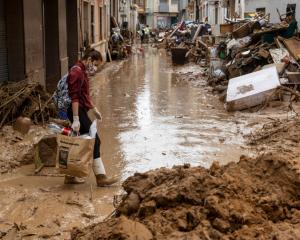
Moscow reacted after Russian military bloggers, writing on the Telegram messaging app, reported what they said were Ukrainian advances north and south of the eastern Ukrainian city of Bakhmut, with some suggesting a long-awaited counteroffensive by pro-Kyiv forces had started.
Ukrainian President Volodymyr Zelenskiy had earlier said the offensive had yet to start.
"Statements circulated by individual Telegram channels about 'defence breakthroughs' that took place in different areas along the line of military contact do not correspond to reality," the Russian defence ministry said in a Telegram post.
"The overall situation in the area of the special military operation is under control," it said in a statement, using the Kremlin's description of the war in Ukraine.
The fact the Russian ministry felt obliged to release the statement reflects what Moscow acknowledges is a "very difficult" military operation.
Ukraine says it has pushed Russian forces back over the past several days near Bakhmut, while a full-blown counteroffensive involving tens of thousands of troops and hundreds of Western tanks is still being prepared.
"We still need a bit more time," Zelenskiy said in an interview with European broadcasters.
Reuters was not able to verify the reports and it was unclear whether Ukrainian forces were attacking in force or just mounting armed reconnaissance raids.
Ukrainian military analyst Oleksandr Musiyenko said Kyiv's backers understand that a counteroffensive "may not result in the complete eviction of Russian troops and the definitive defeat of Russia in all occupied areas."
"We have to be ready for the war to continue into next year - or it could end this year," Musiyenko told Ukrainian NV Radio. "It all depends on how the battles develop. We can't guarantee how the counter-offensive will develop."
Yevgeny Prigozhin, head of Russia's Wagner private army which has led the fight in Bakhmut, on Thursday said Ukrainian operations were "unfortunately, partially successful". He called Zelenskiy's assertion that the counteroffensive had not yet begun "deceptive".
BRITAIN TO SEND CRUISE MISSILES TO UKRAINE
Ukrainian forces had already received enough equipment from Western allies for their campaign but were waiting for the full complement of armoured vehicles to arrive, Zelenskiy said.
In a major step up in Western military support for Ukraine, Britain said it was sending Storm Shadow cruise missiles that would give Kyiv the ability to strike deep behind Russian lines.
The missiles "are now going into, or are in, the country itself," Defence Secretary Ben Wallace told parliament in London, adding the missiles were being supplied so they could be used within Ukraine.
Western countries including the US had previously held back from providing long range weapons for fear of provoking Russian retaliation. Wallace said Britain had weighed the risk.
The Kremlin earlier said if Britain provided these missiles it would require "an adequate response from our military".
In an evening address on Thursday, Zelenskiy said he would soon be able to report very important defence-related news.
"Foreign flags will never reign on our land, and our people will never be enslaved," he said.
The war in Ukraine is at a turning point, with Kyiv poised to unleash its counteroffensive after six months of keeping its forces on the defensive, while Russia mounted a huge winter offensive that failed to capture significant territory.
Moscow's main target for months has been Bakhmut, which it has yet to fully capture despite the bloodiest ground combat in Europe since World War Two.
ZELENSKIY EXPECTED TO MEET POPE FRANCIS
There are no signs of peace talks between the two countries to end the war, which began in February 2022 with a full-scale invasion of Ukraine by Russian forces. Zelenskiy is expected to meet Pope Francis in the Vatican on Saturday, diplomatic sources said, days after the pope said the Vatican was involved in a peace mission. The pope has given no further information on such an initiative.
The war worsened a global food crisis - Ukraine and Russia are major agricultural exporters - and while an agreement last July safely reopened some Black Sea grain shipment channels, negotiations to extend the deal were difficult.
Ukraine, Russia, Turkey and the United Nations discussed on Thursday UN proposals to keep the pact alive. Moscow has threatened to quit on May 18 over obstacles to its grain and fertilizer exports.
Meanwhile in South Africa, an important Russian ally on a continent divided by the war, the US ambassador told journalists that Washington was confident a Russian vessel had loaded weapons and ammunition from South Africa in December, a possible breach of Pretoria's declared neutrality in the conflict.
The government is opening an independent inquiry led by a retired judge into the allegation, the office of President Cyril Ramaphosa said in a statement. No evidence had yet been provided by Washington to support its allegation, the president's office said.
Washington has repeatedly warned countries against providing material support to Russia, saying that those who do may be subject to economic sanctions similar to those imposed on Moscow.



